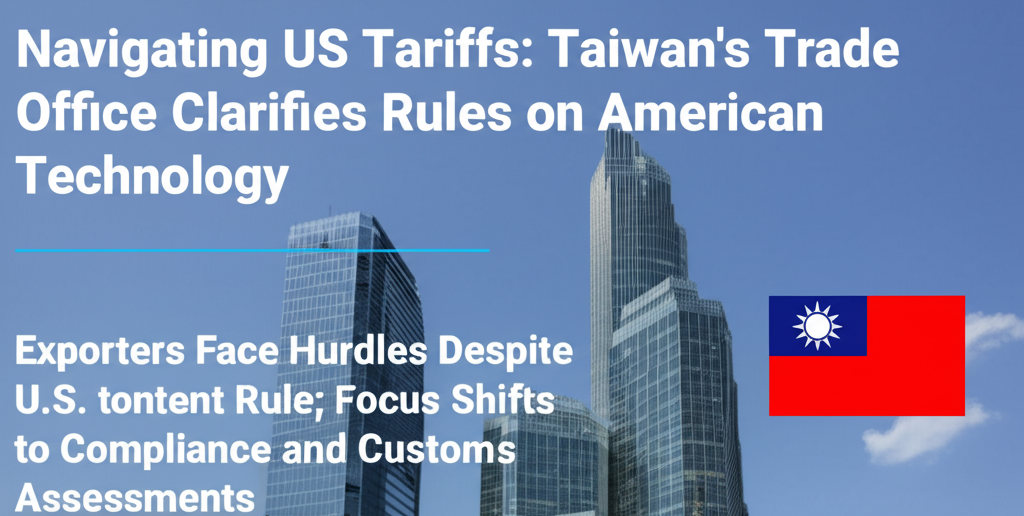Navigating US Tariffs: Taiwan's Trade Office Clarifies Rules on American Technology
Exporters Face Hurdles Despite U.S. Content Rule; Focus Shifts to Compliance and Customs Assessments

Taipei, Taiwan – Taiwanese exporters are facing a complex landscape as they navigate new U.S. tariffs, according to the Office of Trade Negotiations under Taiwan's Executive Yuan. The office has issued a clarification on the application of the U.S. content rule, offering insights into how these regulations will impact Taiwanese businesses.
The U.S. government, under the leadership of President Donald Trump, recently implemented "reciprocal" tariffs targeting countries with significant trade surpluses, including Taiwan. These tariffs, which began on April 9th, impose import duties of 32% and 34% on goods from Taiwan and China, respectively.
The tariffs are governed by U.S. federal government document 9903.01.34, also known as the U.S. content rule. This rule stipulates that products with at least 20% U.S.-made content can be exempt from tariffs on that content.
This "humanitarian corridor" has drawn attention from Taiwanese manufacturers, including those assembling iPhones and MacBooks and AI makers, who are exploring ways to mitigate the impact of the tariffs.
One potential avenue for tariff relief involved claiming exemptions for components or assemblies utilizing American technology as "U.S. content." However, the trade office clarified that the content rule does not extend to technology itself.
For hardware, the office advises that Taiwanese exporters must provide documentation to prove the American origin of their products' components when declaring them to U.S. Customs.
Furthermore, even if a foreign product contains over 20% U.S.-made content, the remaining 80% of its value, manufactured abroad, will still be subject to import duties. Yang Jen-ni (楊珍妮), Taiwan's top trade negotiator, explained that a Taiwan-made product valued at US$100, with US$20 worth of U.S.-made components, will be taxed based on the remaining US$80 value.
The trade office anticipates limited benefit for Taiwan from the U.S. content rule, as only a small number of Taiwanese companies currently source components from American suppliers for products destined for the U.S. market.
For Taiwanese AI server manufacturers who have shifted production to Mexico to leverage the North American free market, the office noted that they will still need to verify the American origin of their components to qualify for tariff exemptions.
The office emphasized that the ultimate determination of how U.S. content is calculated will rest with U.S. Customs.
